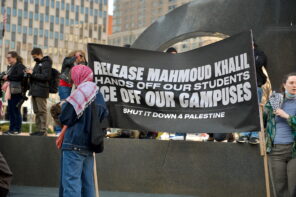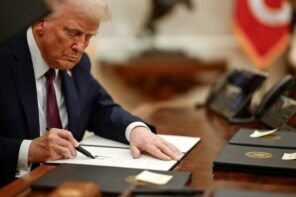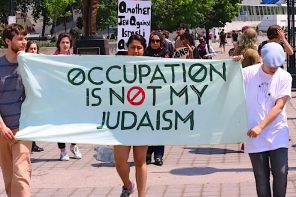Egyptian judge Saeed Youssef made news in May when he issued a pair of mass death sentences against supporters of the Muslim Brotherhood. After trials that lasted only a few hours and during which defense teams were not allowed to present evidence, more than 1100 men were condemned to death for the alleged slayings of two policemen. This month Youssef defended his judgments on the grounds that some of the convicted men are “demons” who follow Jewish scripture.
The intimation by a judge that Muslim Brotherhood adherents are followers of Jewish scripture may seem strange at first glance, but it’s essentially consistent with Egypt’s post-coup media discourse and political policy. In order to justify both the July 3, 2013 military coup and the subsequent campaign to eliminate the Muslim Brotherhood from public life, the Egyptian military regime and a sycophantic media industry have portrayed the Brotherhood as treasonous, fundamentally un-Egyptian, criminal, and, importantly, not truly Muslim.
Since the coup, Egyptian media have described the Brotherhood as a “cancerous tumor,” “foreign agents,” “unpatriotic,” and as having “kidnapped” Egypt in the aftermath of the 2011 uprising that ousted dictator Hosni Mubarak. The Brotherhood has also been described as Zionists who are loyal to the state of Israel, and been accused of a multitude of crimes.
Religion has played a prominent role in the discursive construction of the Brotherhood as enemies. The current regime has portrayed itself as the true bearer of Islam, and constructed the Brotherhood as deviants who don’t understand the true essence of religion. Newly elected president Abdelfattah Al-Sisi has openly discussed his religious devotion and surrounded himself with religious authorities, while also warning that Egyptians must guard against the Brotherhood’s faulty understanding of Islam. Only in a context so distorted as this would it be possible to describe the Brotherhood, a group that is as Islamist as they come, as Zionists who follow the Talmud.













